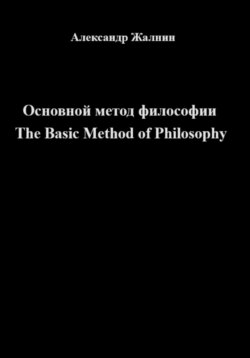Читать книгу Основной метод философии The Basic Method of Philosophy - Александр Жалнин - Страница 2
Introduction
ОглавлениеThe main problem of modern philosophy
Modern philosophy, unlike other disciplines, has one amazing feature: it does not know what it is. And the point here is not so much in the accuracy of the definitions of its subject matter, but in fundamental disagreements about its essence: some consider it science, others consider it art, still others consider it a special way of thinking, fourth find religion in it, fifth find mysticism, and so on, up to to those who consider it empty verbiage.
By the way, there are quite a few of the latter and their arguments are well founded: the quality of many philosophical publications is such that the difference between them and verbiage is sometimes rather arbitrary, if at all.
It should be noted that the matter of clarifying the essence of philosophy – if we talk about a common opinion – has long reached a dead end, so some suggest that philosophy should be considered what each particular philosopher thinks about it. True, this leaves open the question of how to determine who exactly is a philosopher and who is not.
Such a situation, on the one hand, attracts many people to “philosophy” who want to prove themselves in this “mysterious and incomprehensible” area, which makes it close to the people, and on the other hand, it litters it very much, as if in mathematics, along with with formulas and numbers, would use poems and music. In addition, the fuzziness of the modern understanding of philosophy attracts many individuals with fuzzy, eclectic, demagogic thinking, which in other disciplines is a sign of mental retardation.
For the same reasons, the development of philosophy itself also stopped: how can you develop something if you do not know what it is? Or, if we talk about the practical needs of understanding various life problems – what should philosophy develop to solve them, which would not be within the competence of many sciences and modern technologies? Many are looking for “wisdom” in philosophy, which is not found in the sciences and art, but if you start to understand the texts they offer for this title, it immediately becomes clear that this is a kind of fraud, only with the use of confusing terminology, which as a result does not promote solution to the problem.
Thus, we come to the question of the foundations of philosophy – and as we know, it is with the idea of wisdom that its emergence is connected. It is obvious that philosophizing is a type, a special way of thinking, or, to put it another way, it is a special way of thinking. Which, as was believed in antiquity, wise people possessed. Isn't that what Heraclitus meant when he said that much knowledge does not make the mind better?
